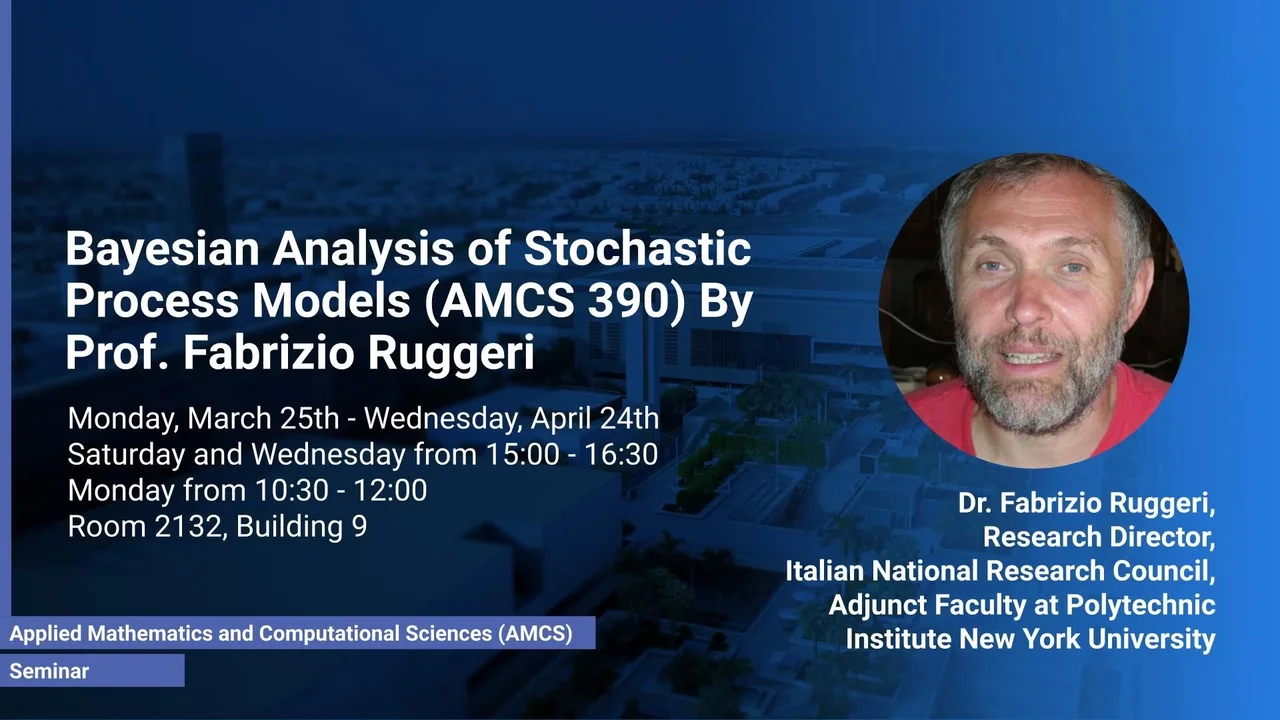
Bayesian Analysis of Stochastic Process Models (AMCS 390) By Prof. Fabrizio Ruggeri (Italian National Research Council, Milano, Italy)
The student will be introduced to Bayesian modeling in selected, but relevant, stochastic processes and their applications: Markov chains, Poisson processes, reliability and queues. The use of real examples will be helpful in understanding why and how perform a Bayesian analysis. Students will be asked to analyze real data, from the elicitation of priors and modeling to (numerical) computation of estimates and forecasts and interpretation of findings.
Overview
Abstract
The student will be introduced to Bayesian modeling in selected, but relevant, stochastic processes and their applications: Markov chains, Poisson processes, reliability and queues. The use of real examples will be helpful in understanding why and how perform a Bayesian analysis. Students will be asked to analyze real data, from the elicitation of priors and modeling to (numerical) computation of estimates and forecasts and interpretation of findings.
Course outline
Introduction to Bayesian Analysis
Inference and prediction for discrete time and continuous time Markov chains
Inference for Homogeneous and Nonhomogeneous Poisson processes
Inference for stochastic models for repairable and non-repairable systems
Inference and decision problems in queueing systems (M/M/1 queues, non-Markovian systems)
Brief Biography
Dr. Fabrizio Ruggeri is Research Director at the Italian National Research Council in Milano. Dr. Ruggeri is Adjunct Faculty at Polytechnic Institute (New York University. Dr. Ruggeri is the current ISBA (International Society for Bayesian Analysis) President and former ENBIS (European Network for Business and Industrial Statistics) President. Author of more than 100 papers, one book and editor of three books.
Biblography
The course largely follows the book Bayesian Analysis of Stochastic Process Models, by Insua, Ruggeri and Wiper, Wiley 2012.
